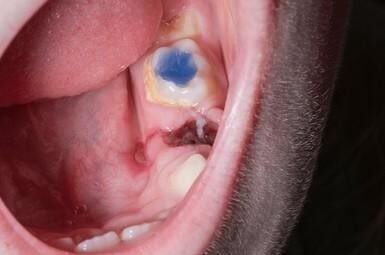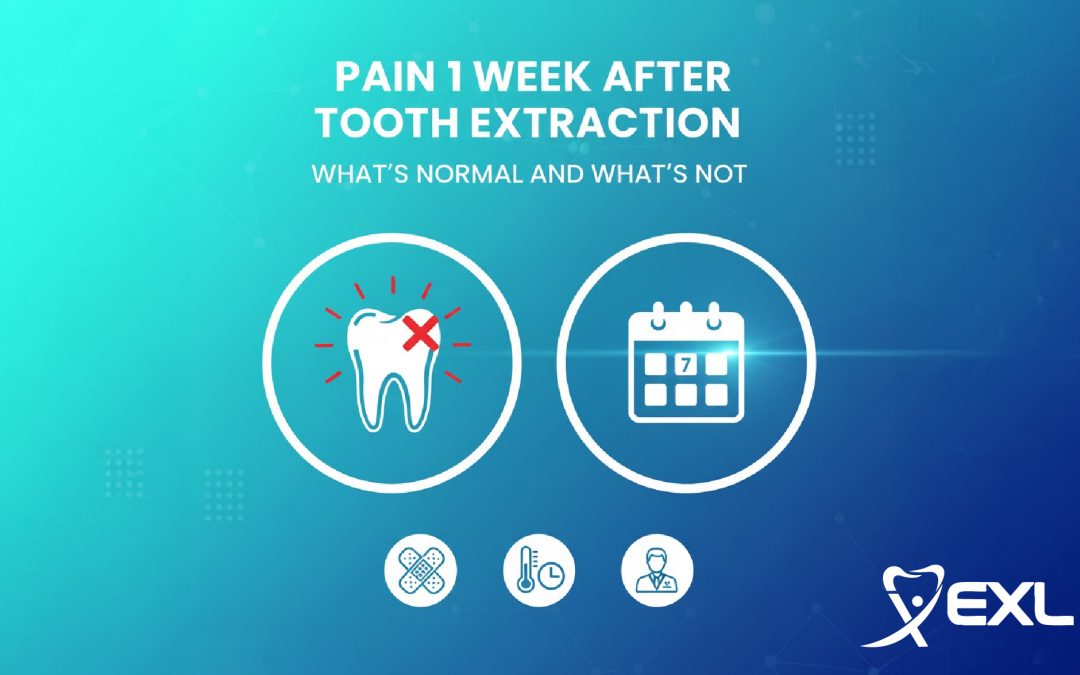
Tooth extractions are routine—but not every recovery goes as planned. If you’re still dealing with pain a full week later, you may be wondering if something’s wrong.
Dr. Priyanka Kumar, Periodontist at EXL Dentist in DLF Phase 4 Gurgaon, shares: “Most discomfort begins to ease by day five. But if pain persists or worsens, we need to assess healing.” With over 12 years of experience and 3,000+ cases, she’s seen it all.
Is It Normal to Have Pain 1 Week After Tooth Extraction?
A little discomfort around day 7 isn’t always alarming. Your gums and jawbone are still healing.
You may feel tenderness while eating, brushing, or yawning. As long as the pain is decreasing day by day, it’s likely part of the natural healing process. But if it’s getting worse—or simply won’t go away—it may indicate something else.
Pain that radiates, returns after easing, or comes with a bad taste or smell could mean it’s time for a follow-up.
Curious what might be causing the pain? Let’s explore that next.
Possible Causes of Pain 1 Week After Tooth Extraction
Pain this late in recovery isn’t always harmless—it may signal a treatable issue.
Dry socket is the most common culprit. It happens when the protective clot detaches early, exposing bone and nerves. This causes intense, radiating pain and often a foul odor or taste.
Infection is another common issue. Swelling, pus, fatigue, or throbbing pain may point to bacterial buildup in the socket.

Tightness or soreness could also stem from jaw muscle fatigue, especially after long procedures.
Some patients also experience bone spicules—tiny fragments poking through the gum. These can feel sharp and may irritate nearby tissue.
Smoking, poor oral hygiene, or chronic illness may slow healing, allowing pain to continue past the one-week mark.
So how can you ease the pain and support healing at this stage? Let’s break it down.
How to Manage the Pain 1 Week After Tooth Extraction
Still in pain after day seven? Time to shift focus from waiting to managing.
Start by checking whether your pain is improving. If not, you may need intervention—not just rest.
Use pain relief (ibuprofen/paracetamol) only if it still helps. Persistent use without improvement warrants a check-up.
Try warm compresses for jaw tightness. Use saltwater rinses (gently) twice a day to reduce bacteria without disturbing the site.
Stick with soft foods—soups, yogurts, and mashed vegetables are ideal. Avoid anything spicy, crunchy, or hard.
Stay hydrated, skip alcohol, and elevate your head while sleeping to reduce swelling.
Brush gently and avoid rinses with alcohol unless prescribed. If pain worsens despite these steps, don’t delay.
Tried everything and still in pain? Visit EXL Dentist in DLF Phase 4 Gurgaon—we’ll guide your healing the right way.
Wondering when to pick up the phone and call your dentist? Here’s your answer.
When to Contact Your Dentist
Day seven is the turning point—pain should be decreasing, not holding steady or getting worse.
Contact your dentist if you experience:
– Pain that spreads to your jaw, ear, or neck
– Swelling that worsens after reducing
– Bad smell, taste, or visible discharge
– A socket that appears empty or grey
– Difficulty opening your mouth
– Numbness in your lips, chin, or tongue
These signs could mean dry socket, infection, or even nerve irritation.
At EXL Dentist, we use digital imaging and modern techniques to address these issues quickly and comfortably.
Don’t let discomfort drag on. Schedule your recovery visit with EXL Dentist in DLF Phase 4 Gurgaon—we’ll get to the root of the problem.
Still unsure what to expect? Our FAQ section below clears things up.
FAQ
How long should pain last after tooth extraction?
Can dry socket happen a week after extraction?
What helps tooth extraction pain at night?
Can infection occur even after a week?
Reference Links
American Dental Association – Tooth Extraction Aftercare
https://www.mouthhealthy.org/all-topics-a-z/tooth-extraction
NHS – Dry Socket and Dental Infections
https://www.nhs.uk/conditions/dry-socket/

